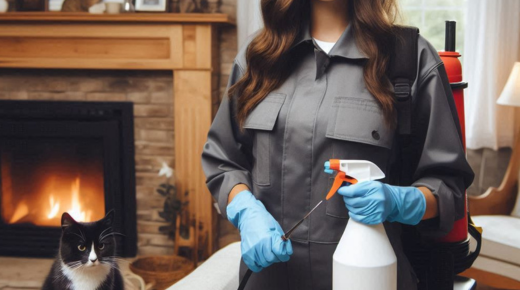Seasonal Termite Alerts in Centralia – When You’re Most at Risk and How to Prepare

Termites, often referred to as “silent destroyers,” can cause significant damage to homes, often before homeowners even realize they have a problem. These small insects feed on cellulose found in wood, making the structural components of your home particularly vulnerable. You should know when you’re most at risk for termite infestations and when to seek professional Pest Control Services in Centralia. This knowledge can save you from costly repairs and protect your home in the long run.
Understanding Termite Seasons
Termite activity is largely influenced by seasons, with certain periods posing more risk than others. Generally, termites thrive in warm, moist environments, which makes spring and summer the prime seasons for termite activity. During these months, termites swarm to mate and establish new colonies, making it the time when homes are most at risk.
In many regions, the onset of spring is marked by termite swarming, a process where mature termites leave their nest to create new colonies. This typically occurs after a rain shower, when the ground is damp and the air is warm. Moreover, homes in humid climates might face termite threats year-round, but the risk is notably higher during these swarming months.
Remember, knowing when termite season is in your area can help you prepare and enact preventative measures effectively.
Identifying Signs of Termite Infestations
Detecting a termite infestation early is crucial in minimizing damage to your home. Here are some common signs that termites may be present:
- Mud Tubes: Termites build these pencil-sized tubes to travel between their colony and their food source. Check your home’s foundation, crawl spaces, and exterior walls for these tell-tale signs.
- Discarded Wings: After swarming, termites lose their wings. Piles of these wings near windows, doors, or light fixtures are a strong indicator of an infestation.
- Wood Damage: Termites eat wood from the inside out, leaving a honeycomb pattern. Tap on wood surfaces to see if they sound hollow, and look for blistering or darkening wood.
- Frass: Drywood termites, in particular, leave behind frass, which are tiny wood-colored droppings. These can accumulate beneath infested wood.
- Head Banging: If you listen closely, you might hear faint clicking sounds inside your walls. This noise is caused by soldier termites banging their heads against the wood to signal danger to the colony.
Preventative Measures for Home Protection
Preventing a termite infestation involves taking proactive steps to make your home less appealing to these pests. Here are some termite prevention tips:
- Reduce Moisture: Termites are attracted to moisture. Try to fix leaks promptly, ensure good drainage around your foundation, and keep gutters clear of debris.
- Proper Ventilation: Ensure proper ventilation in crawl spaces and attics to reduce humidity levels.
- Wood Storage: Store firewood, lumber, and paper away from your home’s foundation and elevated off the ground.
- Barrier Treatments: You can seek professional services for the application of termite barriers, such as liquid treatments around your home’s perimeter.
- Landscaping: Keep shrubs and trees trimmed and away from your home. Try to create a buffer zone between any wood mulch and your foundation.
What to Do if You Suspect Termite Infestation?
If you suspect a termite infestation, take immediate action. Here’s how to proceed:
- Professional Inspection: Contact a licensed pest control expert for a thorough inspection. They have the expertise to confirm an infestation and assess the extent of the damage.
- Treatment Options: Depending on the type of termite and the severity of the infestation, your pest control specialist may recommend treatments such as bait systems, liquid treatments, or fumigation.
- Repair Damage: Once the infestation is controlled, repair any structural damage to prevent future issues and restore the integrity of your home.
- Ongoing Monitoring: You should consider setting up a monitoring system to detect future termite activity before it becomes problematic.
Conclusion
Being aware of termite season and understanding the risks can help you protect your home from these destructive pests. By staying vigilant and proactive, you can ensure your home remains safe and secure throughout the year. Investing time and effort in prevention now can save you from significant damage and repair costs in the future.




